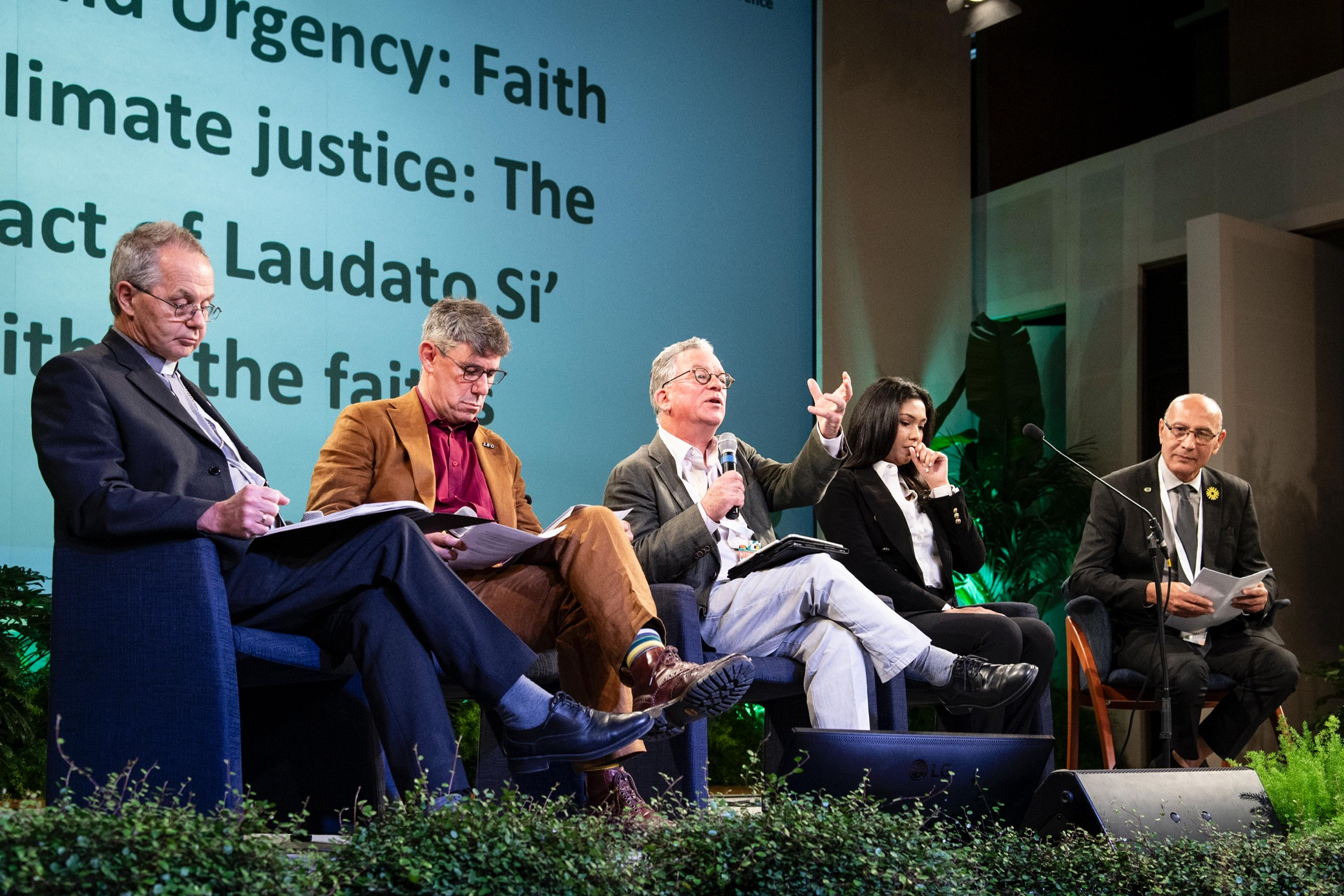With moments of reflection, debate, exchange, and time in nature, the second day of the Raising Hope Conference unfolded under the question: how can we transform the urgency of the ecological crisis into active hope?
At the opening of the day, Dr. Lorna Gold, Executive Director of the Laudato Si’ Movement, invited participants to embrace the virtue of hope as an active force, rooted in commitment and courage. Then, the International Union of Superiors General (UISG) led a moment of prayer that highlighted the deep connection between faith and the defense of our common home.
The morning sessions featured personalities such as Cardinal Jaime Spengler, journalist Austen Ivereigh, Kichwa leader Patricia Gualinga, and Bill McKibben, founder of 350.org, among others. Pianist Mark Chait wove together the debates with time for reflection, performing pieces by Chopin and Beethoven specially reinterpreted and dedicated to Creation.
In the afternoon, the program included small group reflection sessions to get to know one another and prepare together for the plenary session that will close the event. A special moment of reflection in nature took place during the pilgrimage to the Borgo Laudato Si’, the new space conceived by Pope Francis within the Pontifical Gardens of the Villa of Castel Gandolfo, inaugurated last month by Leo XIV.
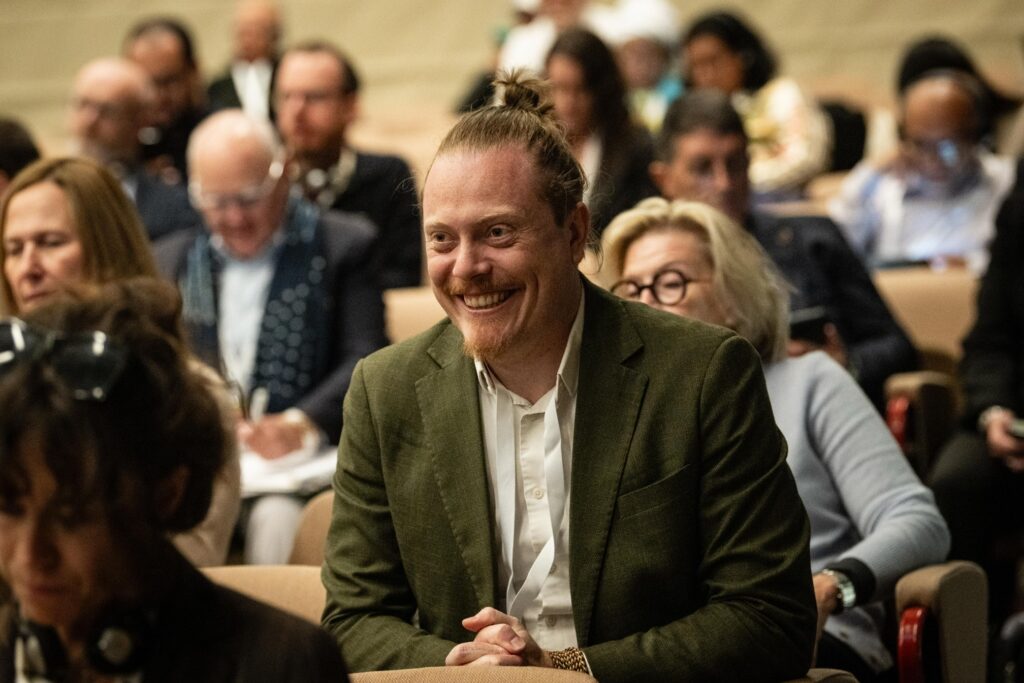
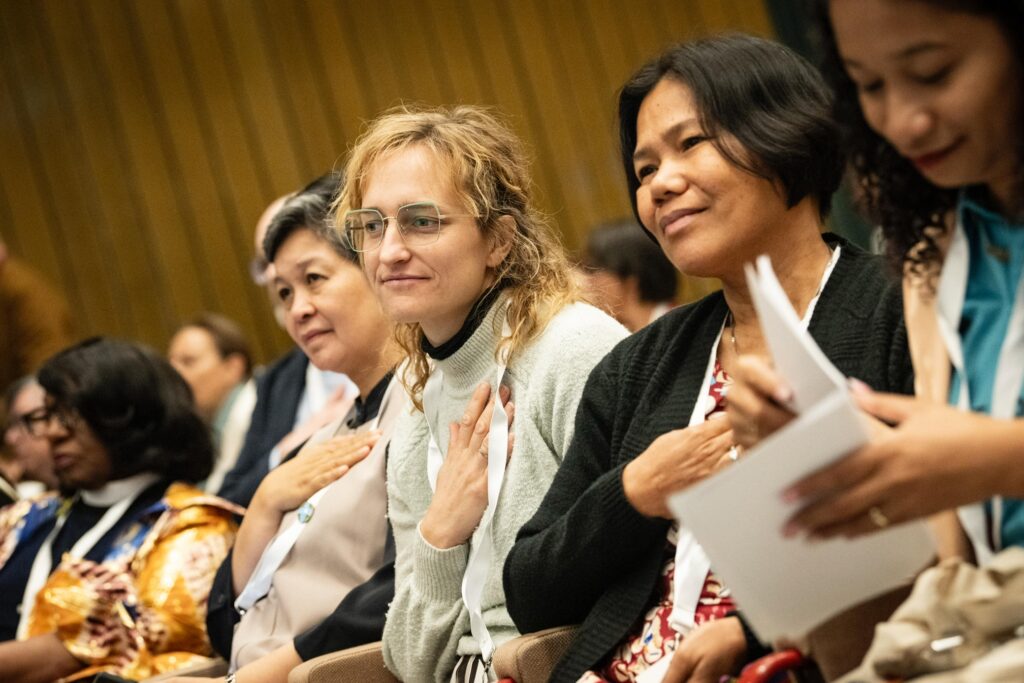
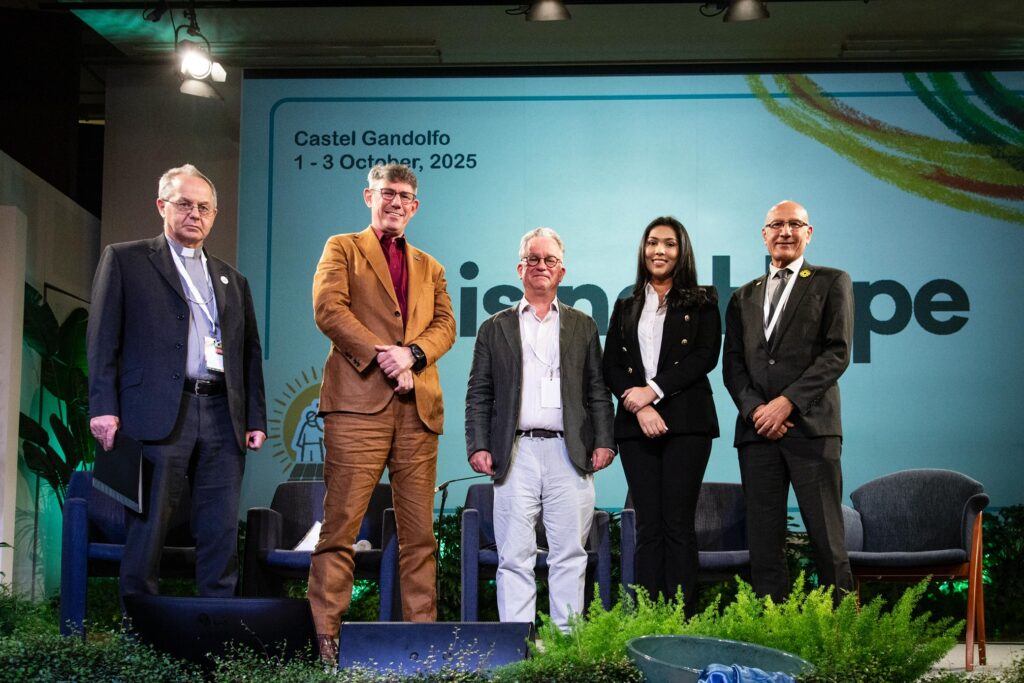
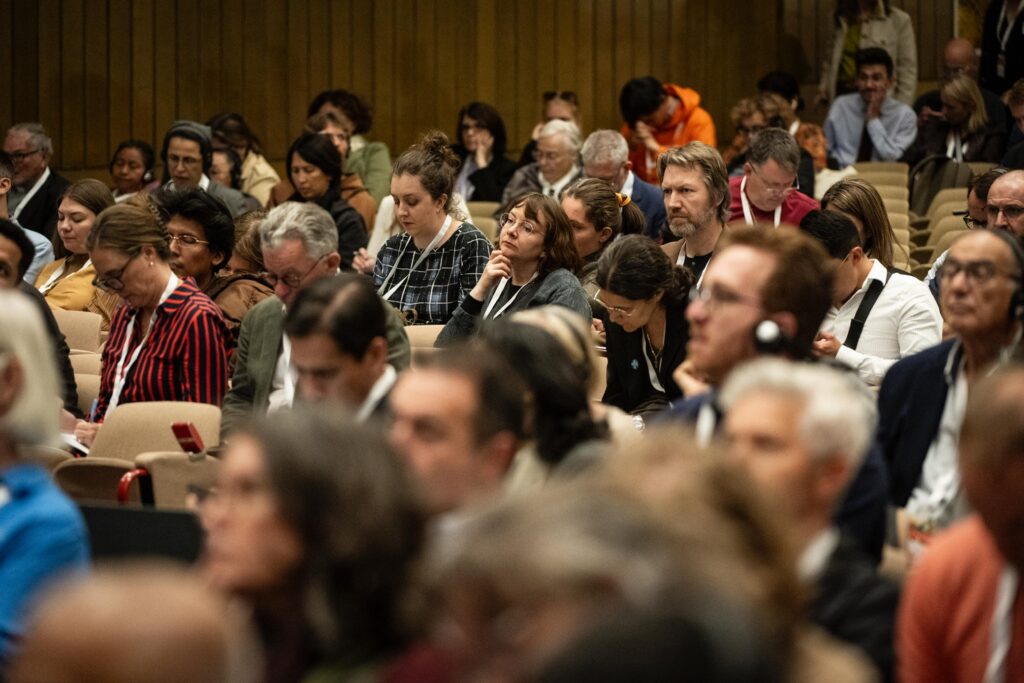
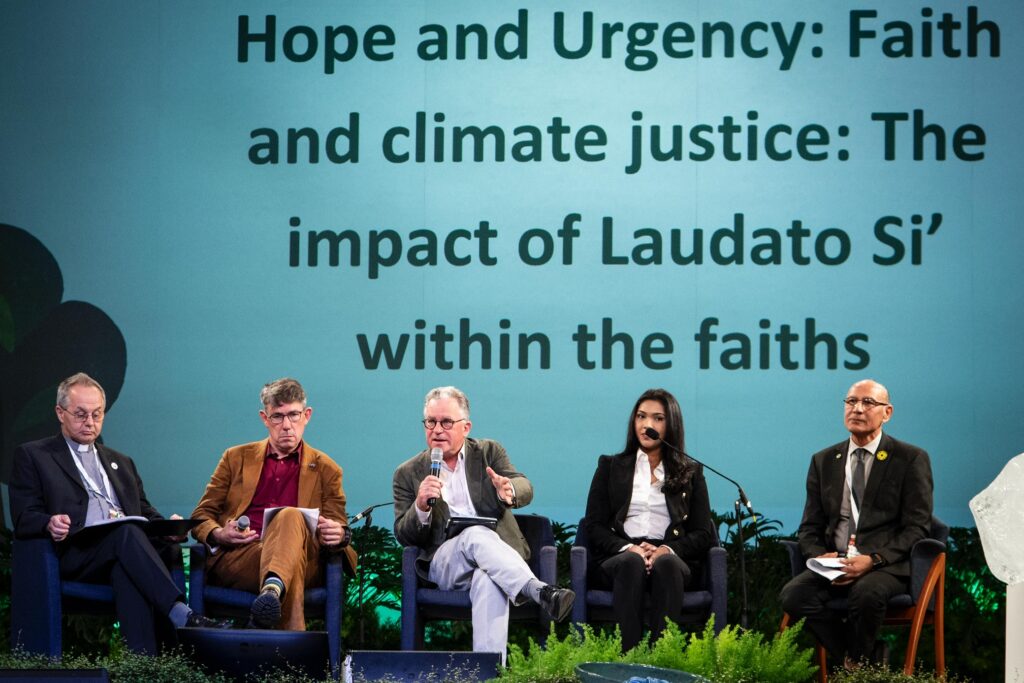
Cardinal Spengler: the voice of peoples “who walk singing”
Cardinal Jaime Spengler, President of the National Conference of Bishops of Brazil, Archbishop of Porto Alegre, and President of CELAM, began his address recalling the words of Pope Francis, speaking of the peoples of Latin America and the Caribbean, those “who walk singing, because their struggles and concerns for this planet do not take away from them the joy of hope!”
His message emphasized that climate justice cannot be separated from human dignity: “Before the cry of the peripheries, of the forgotten, and the groaning of the Earth, mercy is a cry for justice. God does not abandon His people. The Church will not remain silent,” he stated. He also reminded that Indigenous peoples embody harmony with nature and that their wisdom must guide us: “These peoples, over millennia of harmonious coexistence, have woven the most fruitful and effective wisdom to safeguard the Amazonian ecosystems.”
He concluded, visibly moved , wishing that “we may be seeds of a new future.”
The impact of Laudato Si’ on religions
This was the title of the next panel, moderated by Austen Ivereigh, author and biographer of Pope Francis. Ivereigh shared that in dialogue with Pope Francis, he once asked where Laudato Si’ had come from, and the Pope replied: “From the heart.” The debate revolved around the question: “How can urgency be combined with hope?”
Priyanka Lalla, UNICEF youth advocate and writer from Trinidad and Tobago, highlighted the importance of empowering young people: “Hope is a tool we must use to mobilize young people and inspire them to guide their communities toward sustainability.”
Dr. Iyad Abumoghli, academic and former Director of the United Nations’ Faith for Earth Coalition, emphasized that Laudato Si’ introduced spirituality into the debate on politics and science, integrating ecology into society as a whole.
Alistair Dutton, Secretary General of Caritas Internationalis, reflected on how the encyclical gave new authority to voices working for ecological justice.
Bishop Martin Hayes, Laudato Si’ coordinator for the Irish Episcopal Conference, reminded participants that climate change is deeply linked to poverty and called for a true ecological conversion that fosters strong, participatory communities.
Two anniversaries: much to celebrate, much to mourn
Next, Tomás Insua, President of the Laudato Si’ Center of Assisi, recalled the marvel of the Canticle of the Creatures , written by St. Francis of Assisi 800 years ago, and drew a parallel with his namesake in our times, author of the encyclical Laudato Si’ . His reflections spanned the past and present legacy of Pope Francis’ ecological vision.
Insua offered a perspective on how the encyclical has reshaped Catholic engagement with ecology, both at the grassroots and institutional levels.
A second roundtable, moderated by Chiara Martinelli, Director of Climate Action Network Europe, brought together key voices: Patricia Gualinga, Kichwa leader and President of the Tribunal for the End of the Fossil Fuel Era; Bill McKibben, environmentalist and co-founder of 350.org; Laurence Tubiana, CEO of the European Climate Foundation and architect of the Paris Agreement; Prof. John Sweeney, climatologist and emeritus professor at Maynooth University; and Helmy Abouleish, CEO of the SEKEM Initiative in Egypt, who contributed special remarks from the front row.
Together, they addressed how religious communities, science, and civil society can converge to accelerate action for climate justice, reaffirming Laudato Si’ as a catalyst for integral ecology.
Gualinga urged people not to remain passive but to “act in unity, regardless of colors, religions, creeds, or cultures,” motivated by love. McKibben reminded everyone of the properties of the sun: “Every day it offers us warmth, photosynthesis, and the energy we need — we cannot waste it.”
Diversity of voices, new possibilities
Among the hundreds of participants gathered at the conference, Steven Okello from Kenya shared his experience during the day: “It is wonderful to see that Laudato Si’ still has a long way to go. It is a very comprehensive document that needs to reach all the peripheries, because it has not fully penetrated the human mind,” he reflected.
For her part, Agnes Richard, a Laudato Si’ animator from Canada, shared the richness brought by the diversity of voices present at Raising Hope: “Here I have heard voices from secular movements, faith leaders, and economic circles. In that diversity lies the strength: in the collaboration among people, because sharing our ideas nourishes us with new possibilities.”
Gen Verde and Adenike provided music to enjoy the afternoon at the Borgo Laudato Si’.
Tomorrow, Friday, October 3, will mark the final day of the conference, which promises a closing plenary with concrete proposals and commitments for the next ten years.


